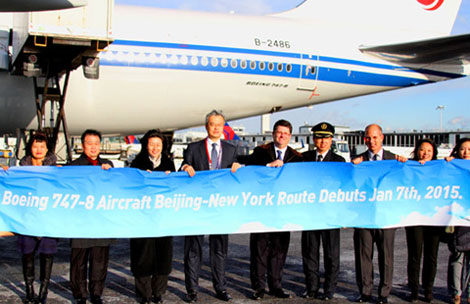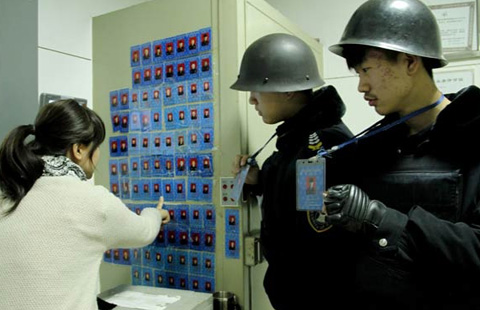US top destination for capital from China
Updated: 2015-01-08 07:17
(China Daily USA)
|
||||||||
The United States will continue to be an ideal place for Chinese capital, as the world's second largest economy is transforming from a net capital importer to an exporter, said a top Chinese economist.
The trend is driven by China's desire to "digest excess domestic capacity, accelerate upgrading and adjustment of industrial structure, encourage effective use of reserves, and exert a positive effect on global and regional geopolitics", said Qin Xiao, chairman of Boyuan Foundation, a Hong Kong-based policy research institution.
His remarks were made at a seminar held by the National Committee on United States-China Relations in New York on Wednesday, where economists said that China's outbound direct investment (ODI) was set to exceed the foreign direct investment (FDI) it receives.
China's ODI in 2014 is expected to reach $120 billion, higher or at least close to the FDI, according to projections by Chinese Ministry of Commerce (MOC). China's ODI in the first three quarters of 2014 rose 21.6 percent, while the FDI decreased 1.4 percent. Economists say China's ODI in 2014 is very likely to eclipse its FDI for the first time in decades. Data for December 2014 are not available yet.
The United States is China's top destination for ODI, with more than $7 billion dollars in the first three quarters of 2014, according to data compiled by Rhodium Group. Some of the deals were high profile, including Lenovo's acquisition of IBM's x86 Server Business ($2.3 billion).
Several other deals are still awaiting government approval, such as Lenovo's acquisition of Motorola Mobility ($2.9 billion) and Anbang's purchase of the Waldorf Astoria ($1.95 billion)
China had invested more than $71 billion in the US as of the first half of 2014, said the Heritage Foundation. Around 30 percent of China's ODI stock in the United States focuses on finance, and around one quarter goes to energy and mining.
But the scale and growth of China's investment to the United States is widely thought to be underestimated, said Qin, as many transactions are done through "tax havens" such as Hong Kong, the Cayman Islands and the British Virgin Islands.
China's ODI in the United States will not only bring capital and job opportunities to the United States, but also "create a constituency that more strongly supports the US-China relationship", said Stephen Orlins, president of NCUSCR. "Those people who benefit from China's direct investments will become pro-constructive in US-China relationships."
But Orlins said as both Republican and Democrat parties are gearing up for the primary and presidential elections, politicians may take to "China-bashing" to win votes, which may hurt Chinese investments in China.
China's telecom infrastructure builders Huawei and ZTE were accused of threatening US national security in October 2012, one month before the 2012 presidential election, and China's construction vehicle maker Sany was blocked from investing in a wind-power farm in Oregon.
"Presidential candidates propose solutions and deal with America's real problems. Don't use China as a scapegoat for China's problems," he said.
The Chinese government has been encouraging Chinese enterprises to expand overseas.
In 2013, Chinese president Xi Jinping proposed to strengthen economic ties with countries along the Silk Roads both on land and sea.
Lu Huiquan in New York contributed to this story.
Most Viewed
Editor's Picks

|

|

|

|

|

|
Today's Top News
Record-breaking $1b paid for site in Beijing
Xi renews vow of Latin America aid
French wary of new attack
Beijing sees record 'land rush'
Xi sends condolences to France over terror attack
Air China's new Boeing 747-8 lands
US top destination for capital from China
Alibaba.com launches payments protection
US Weekly

|

|















